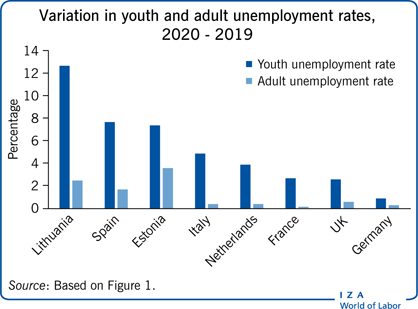Elevator pitch
The Covid-19 pandemic has produced unprecedented negative effects on the global economy, affecting both the demand and supply side. Its consequences in terms of job losses have been important in many European countries. A large number of firms have been forced to dismiss at least part of their workforce or to close down all together. Considering that young people are usually penalized more than their adult counterparts during economic crises due to the so-called “last-in-first-out” principle, it is worthwhile to evaluate if the youth will also end up paying the highest price during this pandemic-induced recession.

Key findings
Pros
Young people are on average more educated and flexible than adults and thus more able to react to economic changes.
Young people have significantly higher digital competences, which is very important in the Covid-19 crisis.
The prolonged suspension of many productive activities could lead to closure, involving employees of any age.
Young fathers and mothers have been almost equally hurt by the pandemic, with some differences across countries.
Due to their flexibility, young people have secured new jobs related to digitalization of consumption and production, and will likely benefit most from the after-pandemic recovery.
Cons
Young people lack work experience and ability when job searching.
Young people often lack soft skills.
At EU level, the ratio between the youth and adult unemployment rate increased significantly during the first year of the pandemic.
Young people are victims of the “last-in-first-out” principle.
Young people are over-represented in informal jobs and in sectors most hit by the pandemic, such as entertainment and recreation as well as accommodation and food services.